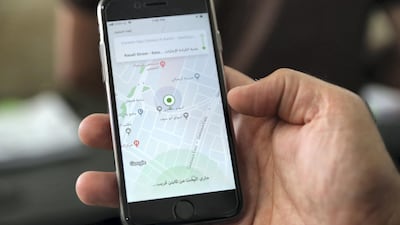Careem has told all of its office staff they can work from home indefinitely as the Dubai technology company looks to reduce rent and office expenses and hire at least 150 more people to develop new versions of its Super App.
"The last six months really were an experiment," Mudassir Sheikha, chief executive and co-founder of Careem, told The National.
The majority of Careem staff across its 36 offices in 14 countries self-reported higher productivity, as they were forced to work from home in the wake of the Covid-19 pandemic. The reports collected on a monthly basis from the beginning of March, when lockdown measures took hold around the world, showed Careem staff developed stronger relationships with peers in other countries while working remotely.
Mr Sheikha said in addition to these self-assessments, the company has been able to roll out new products and hit performance targets while working from home.
Careem’s shift comes nearly five months after it laid off a third of its office staff. Technology companies are grappling with how to retain talent in a world still in the grips of a pandemic and facing the worst recession since the Great Depression.
Uber, which finalised its $3.1 billion (Dh11.38bn) acquisition of Careem in January, set out a Global Caregiver Enhanced Flexibility Policy, meant to set official protections for employees managing family and work. The policy, announced in August, will allow Uber employees to skip “low-priority” meetings as needed and modify their work hours throughout the week.
Elsewhere in the tech sector, Google chief executive Sundar Pichai said in an interview with Time on Wednesday that the company was looking at a "hybrid" model for long-term remote work. Sixty-two per cent of Google employees want to return to their offices at some point, but not every day, according to a survey released by the company this week.
Facebook expects employees to return to the office by summer 2021 while Twitter said employees can work remotely “forever”.
Mr Sheikha said that although there have been challenges to working remotely, the company has treated them like any other issue in a product and sought to quickly address it.
After employees appeared to be working “all hours” the company set core business hours along a more traditional 9 to 5 schedule where meetings and calls are officially allowed. For those who prefer to work in the office for whatever reason, they are still able to do so.
“When we see an opportunity to make a first move, to figure something out, and then inspire others, then we have to do it,” he said of the decision to shift to a "remote-first" strategy.
He said greater flexibility will help the Middle East “realise even more potential” from the talent in the region if there is a massive shift in the approach to work. As the first UAE company to announce a remote-first strategy, Mr Sheikha sees it as another way Careem can differentiate itself as an employer and "leapfrog" competition in the local tech space.
“We’ve seen some challenges [in remote work]. But we have a responsibility as a leading company and a digital first company to figure this out,” he said.
“This is the future of work.”













